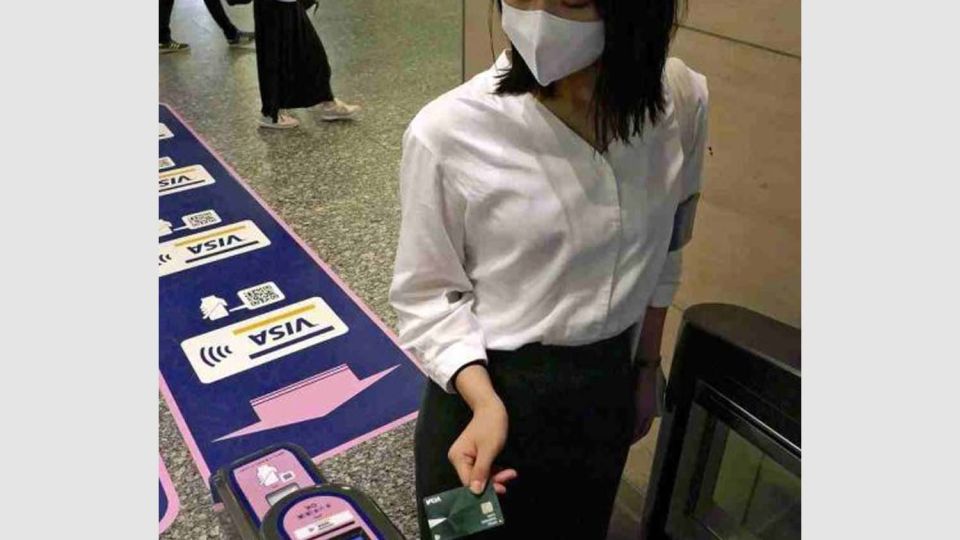October 3, 2022
OSAKA — Credit cards are spreading as an alternative to prepaid smart cards such as Icoca, letting people pay for public transportation simply by tapping their credit card on a reader at a ticket gate.
Passengers can qualify for cheaper rates by using their everyday credit card, and transportation companies can cut back on the costs for ticketing. About 30 companies nationwide are using credit cards this way or conducting trials. Paying for public transportation by credit card is expected to spread further when more overseas tourists come to Japan in the near future.
Nankai Electric Railway Co. is experimenting with the use of Visa cards at 28 major stations, including Namba, Kansai Airport and Koyasan. Passengers pay their fare by tapping a card on a dedicated reader at a ticket gate.
In the trial, Nankai also introduced a discount service in cooperation with its Wakayama-based group firm Nankai Ferry Co. If a person travels between Tokushima and Wakayama by ferry and Nankai train lines, the train fare portion is free.
A credit card does not make settlements immediately but determines the amount to be paid the day after the card is used, leaving some time to check if the payment qualifies for a discount.
The trial will be conducted through December, after which full adoption of the system will be considered.
“Ticketing involves the cost of issuing tickets, and maintaining and inspecting automatic ticket checkers,” a Nankai railway division chief said. “We want to go further into ticketless operations by offering passengers more options.”
An increasing number of transportation companies have introduced contactless credit card payments. Thirty operators in 20 prefectures, including Shinki Bus Co., are planning to conduct trials currently or this autumn.
These moves have been prompted by the industry’s financial troubles amid the pandemic.
Transportation smart cards became popular after East Japan Railway Co. introduced the Suica in 2001, but a decline in the number of passengers in recent years has made it imperative to further improve efficiency in the industry.
Visa cards issued after 2019 can be used for contactless payments, and credit card payments became a new move to reduce the dependence on costly tickets.
Popular overseas
Transportation companies have their eye on foreign visitors to Japan. It’s common to pay fares by tapping a credit card overseas, with more than 580 transit agencies around the world, including some in London and New York, accepting such payments, according to Sumitomo Mitsui Card Co.
Before the pandemic, visitors were seen lining up at Kansai Airport to get the balance on their transportation smart cards refunded before flying back home. The spread of contactless credit card payments would facilitate the use of trains and buses by foreign visitors.
The government is gradually easing COVID-19 border control measures, such as arranging to lift the cap on daily arrivals. With an expected recovery in the number of inbound tourists ahead of the Expo 2025 Osaka, more transportation companies are likely to adopt credit card payments.
Currently, the Visa brand is the only credit card available for contactless fare payments in Japan. Looking ahead, Sumitomo Mitsui Card said it would expand to include other credit card brands from March 2023.
In Japan, where prepaid transportation smart cards are widespread, credit card companies are touting the benefits of contactless payments for tourism. The idea is that transportation operators will be able to set their rates flexibly, leading to an increase in credit card usage.
The pandemic has contributed to the spread of telework in recent years, changing the traditional form of commuting. Credit card payments can offer perks, such as exclusive points, that could benefit commuters depending on how often they go to work.
A Sumitomo Mitsui Card spokesperson said, “Customers can use different cards in different situations, such as a transportation credit card for commuting to work or school, and a credit card for sightseeing.”

